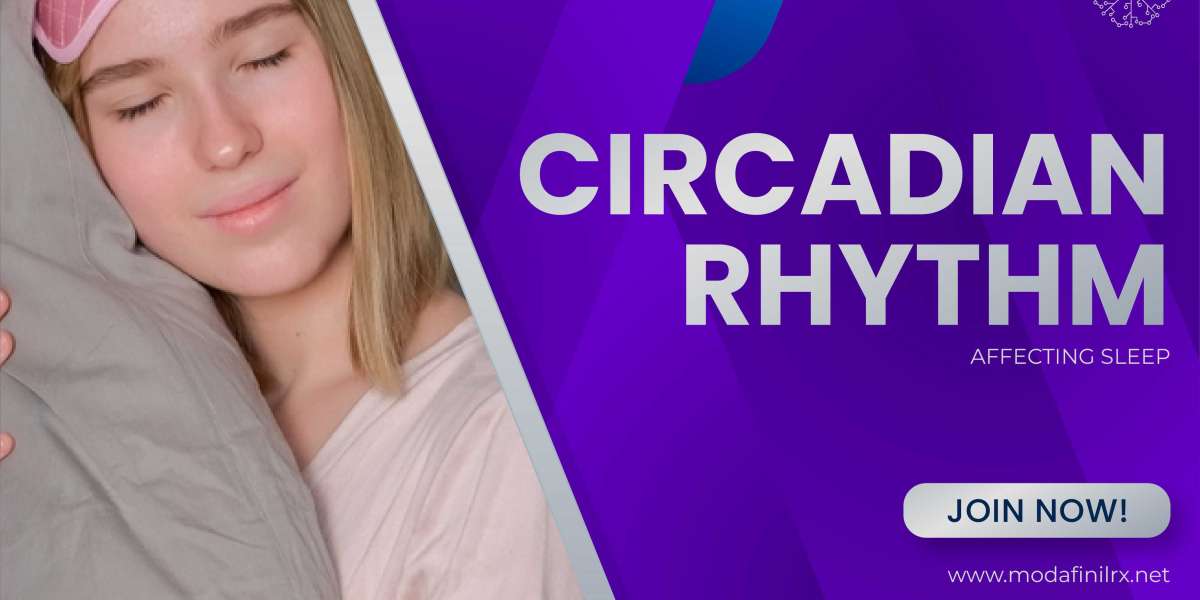The brain controls the circadian rhythm, which acts as the master clock, and that's the primary reason individuals sleep at night and wake up during the day. The changes that occur in the body result from exposure to light and darkness.The contrast between light and dark impacts all living things, including animals, plants, and even microorganisms. If a person's circadian rhythm functions well, they get good sleep at night and wake up feeling refreshed during the day. However, if the circadian rhythm is disrupted, it can cause various sleeping disorders, including insomnia. The disruptions in one's circadian rhythm are the root cause of the mental and bodily shifts that can be witnessed in themselves and others.

BIOLOGICAL CLOCK:
They are proteins that connect with the cells that make up the body. It is present in each and every cell, tissue, and organ that makes up the body. Researchers have discovered that genes in mice, plants, and other organisms are quite similar to one another. The body's biological clocks are responsible for regulating all of the processes carried out by the body. A biological clock's effect is known as a circadian rhythm, but not all biological clocks follow a circadian rhythm. For instance, plants can adapt to changes in the environment by utilizing a biological clock that keeps time in a manner that is distinct from the standard twenty-four-hour cycle.
MASTER CLOCK:
The brain contains its internal clock, which is present in all organisms that are still alive today. The master clock comprises a group of 20,000 neurons that come together to form a structure known as the suprachiasmatic nucleus (SCN). The hypothalamus is the location of the SCN, which is found in the brain, and the eyes are the source of information for the hypothalamus. In some circles, it is also referred to as the circadian pacemaker.
WORKING OF CIRCADIAN RHYTHM:
The circadian rhythm is responsible for ensuring that all of the body's processes are carried out promptly and effectively during the twenty-four-hour cycle. The word circadian comes from the Latin word circadiem, which translates to "about a day." Circadian rhythm derives its name from this Latin word. The blooming of flowers coincides with the emergence of insects from their nests to feed on the nectar. The digestive system produces proteins in the human body, which cause a person to feel hungry and prompt them to eat.
The suprachiasmatic nucleus is extremely light-reactive due to its location. The circadian rhythm is most sensitive to light, making it the most important factor in its regulation. When the master clock is disrupted in any way—for example, by a person working out, by an increase in temperature, or by your participation in social activity—the situation is considered abnormal.
Contact Us:

Try our modafinil and armodafinil tablets at the lowest price if you struggle with sleep. Visit our website to learn more.
E-mail Id: info@modafinilrx.net
Phone Number: +1 (724) 384 7703
Home Page: https://modafinilrx.net/
CIRCADIAN RHYTHM AFFECTING SLEEP:
Most of the time, when individuals discuss circadian rhythm, they refer to sleep as the topic of discussion. To acquire a proper understanding of the circadian rhythm, it is only necessary to learn one topic, and that is the sleep-wake cycle. As a person awakens, the master clock in the brain sends messages to the body to stay aware and to keep the person feeling fresh and active throughout the day. When it is dark, the master clock sends signals to the brain to tell it to create melatonin. Melatonin is necessary for a person to be able to sleep when it is nighttime. Melatonin is a hormone that promotes sleep and sends messages to the brain throughout the night to ensure that a person stays asleep for the entirety of the night. It makes it easier to get restorative sleep at night and stay alert throughout the day to engage in various activities.
CIRCADIAN RHYTHM AFFECTING OTHER THAN SLEEP:
When the circadian rhythm is thrown off, it can cause several physical changes. Depressive disorder, bipolar disorder, and dementia are all associated with alterations in metabolism and weight, blood sugar, and cholesterol levels. Alterations can also be made to the immune system by the 24-hour cycle. The circadian rhythm plays a role in both the prevention of cancer and the repair of damaged DNA. The circadian rhythm also has an impact on the effectiveness of cancer treatments.
WHEN CIRCADIAN RHYTHM IS OFF:
A variety of issues will arise with one's ability to sleep. A person will be unable to sleep when necessary, and they may awaken at night or feel drowsy during the day. Obstructive sleep apnea, also known as OSA, can be brought on by a disruption in the circadian cycle, which causes the body to start and stop breathing during sleep repeatedly. The condition known as obstructive sleep apnea causes a reduction in the amount of oxygen in the body, as well as several awakenings throughout the night. The other two issues that might arise when the circadian rhythm is disrupted are insomnia and excessive daytime sleepiness.
WHAT DISTURBS CIRCADIAN RHYTHM:
The effects of disturbances might last for either a brief or a lengthy period of time. Based on their symptoms and root causes, researchers in the field of circadian rhythm sleep-wake disorders (CRSWD) have identified several distinct subtypes, including the following:
- Jet lag:
The time zone will shift in a relatively short amount of time. Individuals whose journeys take them to other time zones suffer from a condition known as "jet lag" because the environmental shift throws off their internal clocks. As soon as they touch down in a new place, they experience feelings of exhaustion.
- Rotational shifts:
If a person works in shifts, particularly the night shift, that person will have to sleep during the day, which is the reverse of how everyone else sleeps during the night.
- Advanced sleep:
Individuals who go to bed early in the evening and get up early cannot change their sleeping and waking schedules, even if they want to sleep late and wake up later. The condition is almost exclusively observed in people of advanced age, and only a few instances have been reported. There is also the possibility that an advanced sleep phase is caused by heredity in the family.
- Delayed sleep:
Individuals who go to bed late at night and wake up late in the morning are said to have a late sleeping pattern. This is also present, albeit in a much lower quantity. Because owls either do not sleep or are only active at night, people who sleep late into the night are called night owls, just like birds. According to the research findings, just 16 percent of adolescents fall into this category. The root cause of the issue has not been identified; however, it could be genetic, or the individual could have a physical disorder or be related to the person's behavior.
- Non-24 hour sleep wake disorder: The majority of affected individuals are those who are blind. Because they cannot gaze, the light from the sun cannot penetrate their eyes. Even if they are blind, the body will continue to follow its natural circadian rhythm; their sleeping patterns will be delayed by a few minutes or even hours.
- Irregular sleep wake rhythm disorder: This occurs in a very small percentage of all cases. People nap intermittently during the day; thus, sleep is sometimes uninterrupted. If the individual has dementia or if someone extremely important to them has passed away in the past, which is the cause of the master clock in the hypothalamus not functioning properly, then this could be the cause.

MAINTAINING A HEALTHY CIRCADIAN RHYTHM:
Sleep will assist in restoring our energy levels and prepare us to function the next day when we get up, but, we do not have complete control over the 24-hour cycle that our bodies operate on. The following are some sleep-related pointers that, when implemented, will result in an improvement in our circadian rhythm:
- Sunlight: The circadian rhythm will be quite powerful if you stroll outside under the sun very early in the morning.
- Constant sleep schedule: Changing the time you go to sleep or wake up will make it more difficult for your body to adjust to its natural circadian rhythm.
- Exercise daily: If you keep your body active during the day, it will be much simpler for it to wind down and get some shut-eye after the sun goes down.
- Caffeine: Since caffeine will keep you alert and make it very difficult to fall asleep at night, you should avoid consuming caffeinated beverages in the afternoon or before bedtime. Caffeine will also prevent you from being dehydrated.
- Avoid light: It is quite dangerous for your eyes to be exposed to artificial light at night since it will prevent you from falling asleep. Because of this, if you refrain from using electronic gadgets in the evening, you will find that falling asleep is much simpler.
- Take short naps: Your normal sleep pattern will be thrown off if you take a long nap in the afternoon or during the day because this will cause your bedtime to be delayed later in the evening.


